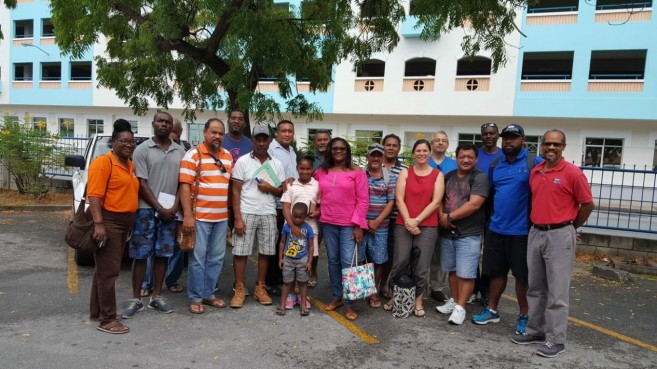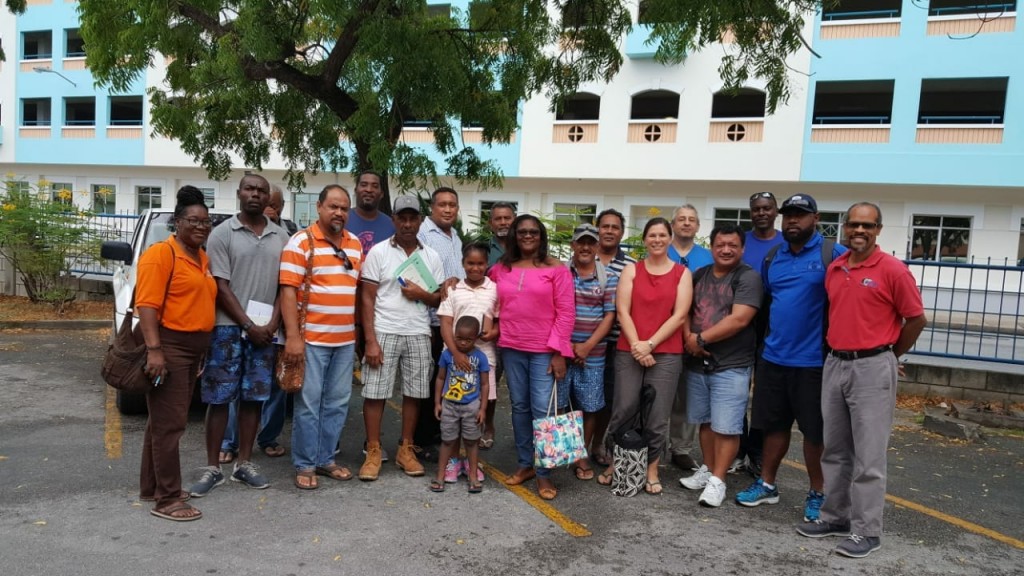The Caribbean Regional Fisheries Mechanism (CRFM) and the FAO Subregional Office for the Pacific Islands (FAO SAP) in Samoa are collaborating to host the Pacific-Caribbean Nearshore FAD Fisher Exchange – a 12-day study tour in three Caribbean countries.
Stakeholders from four Pacific territories – Cook Islands, Vanuatu, Tonga and Samoa – arrived in Barbados this weekend for the first leg of the tour, organized to facilitate the sharing of experiences among stakeholders from the Pacific and Caribbean Small Island Developing States (SIDS).
The tour will also facilitate the development of best practices to support sustainable development of small-scale fisheries which rely on the use of Fish Aggregating Devices (FADs).
Milton Haughton, Executive Director of the CRFM said, “We are very pleased to be able to host our visitors from the Pacific Islands and not only share our successes and knowledge regarding the use and management of FADs by our small-scale fishers to improve production of pelagic fishes, but also to learn from their experiences in the Pacific. This study tour is mutually beneficial to fisherfolk in the Caribbean and Pacific Islands.”
The team began with visits to fish markets and landing sites in Barbados. Tour participants also dialogued while there with members of the local Fisheries Association.
They moved on next to Grenada, where they are also to visit fish markets and landing sites, and hold discussions with fishing associations there.
The final leg of their tour is Dominica, where they will, likewise, engage stakeholders in that country.
The tour is scheduled to conclude on May 30, and the information shared will be compiled to produce a publication detailing the characteristics and status of small-scale FAD fisheries in the Caribbean and the Pacific. The report will focus on fisheries management, fishing operations, the technology used, the engagement of fishers in decision-making, care of the catch, marketing and sale of products, data collection, as well as best practices for the fisheries. It will be disseminated once finalized.
Organizers note that nearshore FADs are gaining momentum in the Pacific region as a tool to enhance food security and income for fishers and communities, and to reduce pressure on the resources of lagoons and reef fisheries. Evaluating FAD fisheries in other parts of the world, such as the Caribbean, can provide greater insights into both risks and opportunities associated with fisheries development, they detailed.
FADs are effective in harvesting pelagic fish, and in some countries, they are deployed by fishers or by governments for public use.
The study tour is being implemented under a letter of agreement which the CRFM and the FAO signed earlier this month for the sharing of information across SIDS, to identify best practices associated with the sustainable development of small-scale fisheries around anchored FADs.

Share
Read more

